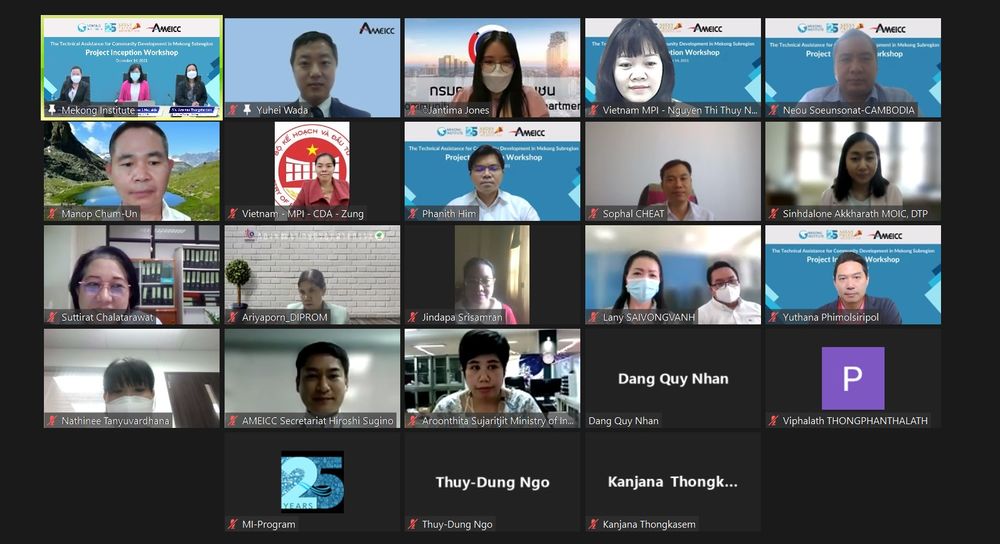Community products have played an important role in the rural economies, and community development has been an integral part of regional cooperation and integration in the Mekong subregion
said Mr. Suriyan Vitchitlekarn, Executive Director of Mekong Institute, during the opening program of the Inception Workshop
his project will contribute to the economic pillar of Mekong Industrial Development Vision 2.0 aiming at fostering micro, small and medium-enterprises (MSMEs) and narrowing the development gap between urban and rural areas through enhancing the capability of community enterprises and government officials to create value-added agriculture products
Mr. Yuhei Wada, the Chief Representative of AMEICC in Thailand, mentioned in his opening remarks that
Attended by 21 government officials and members of the academe in CLV and Thailand, the Inception Workshop provided a platform for the participants to establish a network of professionals who will forward OVOP promotion and development in the region, intensifying the ‘South-South’ connections for future collaborations. The activity also presented how the project will replicate the success of Thailand in producing and marketing Processed Agricultural Products (PAPs). Priority products per country was also a part of the discussion, identifying possible SMEs and community enterprises who will become partners of the project.
With agriculture as the major economy of GMS countries, the project is expected to promote OVOP for a shift to more innovative ways of adding value to agricultural produce and mitigate the negative impacts of weather variability in the volume and value of agricultural products in CLV. Given the same physical geography and economy, the transfer of knowledge and technical assistance from Thailand to CLV envisions positive outcomes. A series of training and coaching sessions will be organized until June of 2022.








